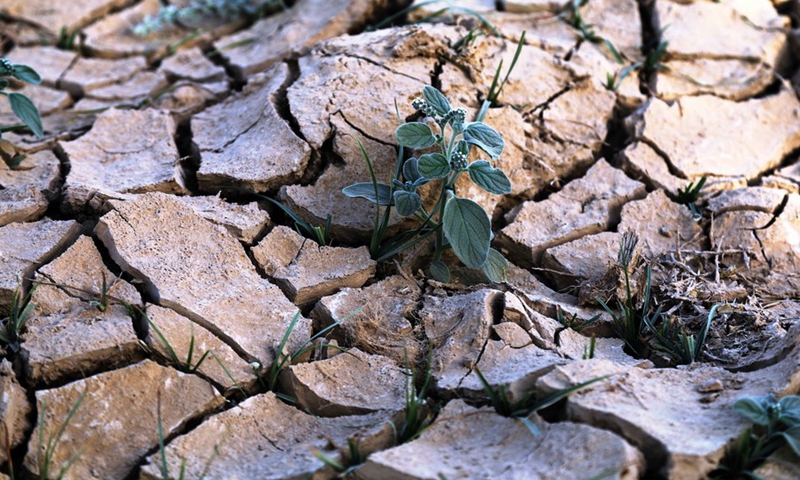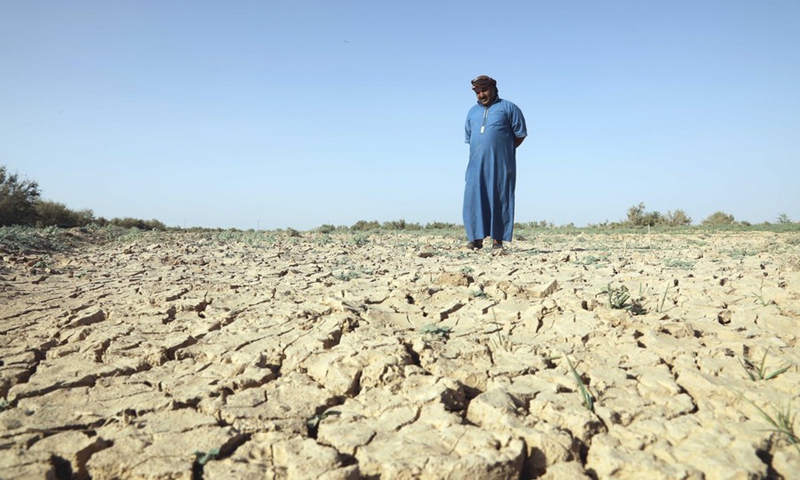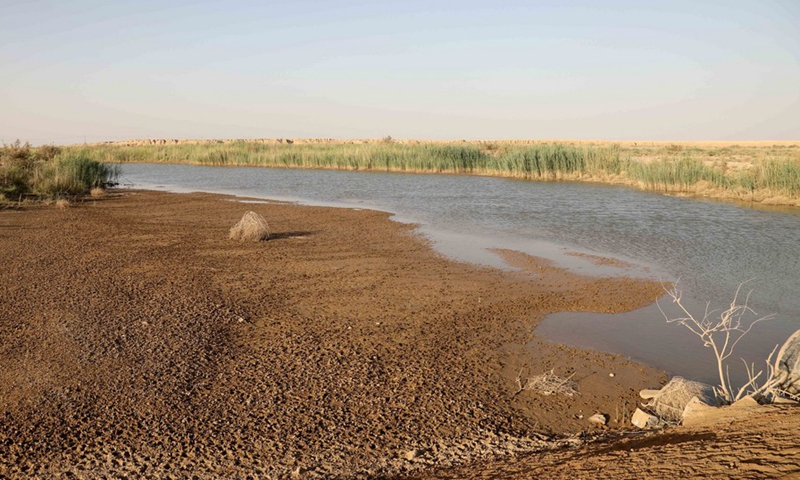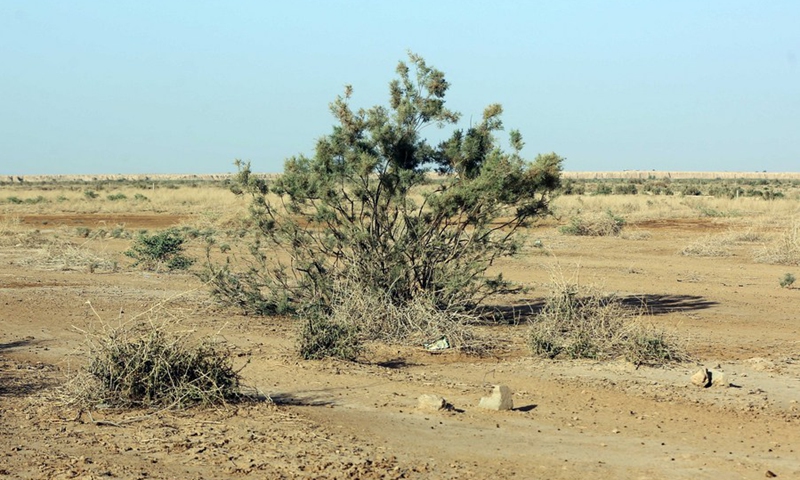
Desert plants grow on cracked land in a dry agricultural area due to water scarcity in Salahudin province, Iraq, on June 14, 2022.(Photo: Xinhua)

A farmer stands in the middle of his farm, which looks cracked as a result of drought and water scarcity in Salahudin province, Iraq, on June 14, 2022.(Photo: Xinhua)

A semi-arid river in the village of Kobeba, south of Salahudin province, Iraq, on June 14, 2022.(Photo: Xinhua)

Desert plants grow in agricultural areas as a result of drought and lack of rainfall in Salahudin province, Iraq, on June 14, 2022.(Photo: Xinhua)
dried trees on his farm in Iraq's Salahudin province, north of Baghdad, Walid Ali Mohammad stood helplessly, complaining about the drought that killed his trees and animals and wiped out his family's only source of livelihood.
"My farm and crops have gone dry. My animals died of thirst. The water scarcity ruined my life," said the 36-year-old Mohammed.
During the past few years, the small river running through Mohammed's village of Kubaiba started to dry up.
"Now, there is few green tree left and the farm turned into a barren land," said Mohammed, who used to plant citrus fruit on his land.
Known in ancient times as Mesopotamia or the land between the two Rivers Tigris and Euphrates, Iraq's fertile farmland is in danger today amid an unprecedented climate change.
According to the United Nations Environment Program, Iraq ranks the fifth most vulnerable country in the world to climate change, which will negatively impact social security and health in the war-torn country.
"We suffer from severe water scarcity because more than 90 percent of water comes from outside its borders," Iraqi Environment Minister Jassim al-Falahi told Xinhua.
The minister said that one of the most effective measures to be taken is to rationalize the use of water in agriculture and irrigation, such as the use of drip irrigation or sprinklers.
The Iraqi government is carrying out a massive campaign to raise public awareness about the importance of confronting the impact of climate change, added al-Falahi.
Hameed al-Nayef, the spokesman for the Ministry of Agriculture, stressed that the danger of water scarcity is threatening food security in Iraq.
"There is a real danger and threat to food security in Iraq due to drought and water scarcity, which has led to a significant cut in the arable area this year, and this has repercussions on the lives of farmers," al-Nayef told Xinhua.
He also said that one of the ministry's plans to confront the water crisis in Iraq is to rely on groundwater and dig wells as an alternative to providing water for agriculture.
Ali Radhy, the spokesman for the Ministry of Water Resources, told Xinhua that "the water issue is very important and fundamental to food security."
Radhy said that the Ministry of Water Resources has made a plan to confront the water scarcity, which includes drilling wells in drought-affected areas and installing water pumping stations to supply some areas that have no access to water due to low river levels.
The serious challenge of water scarcity pushed the Iraq Parliament's First Deputy Speaker Hakim al-Zamili on Thursday to threaten to impose a trade ban on Iran and Turkey if they continue to "limit the flow of rivers from their lands."
